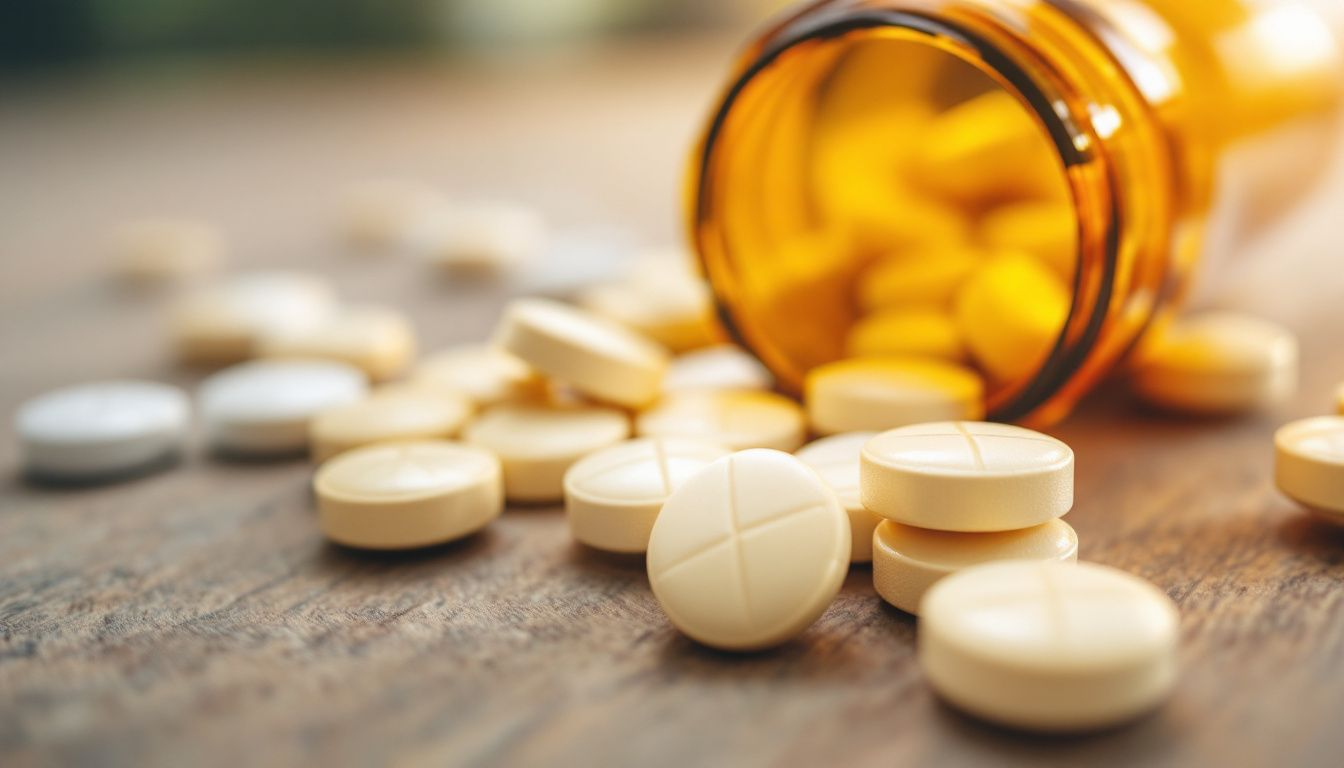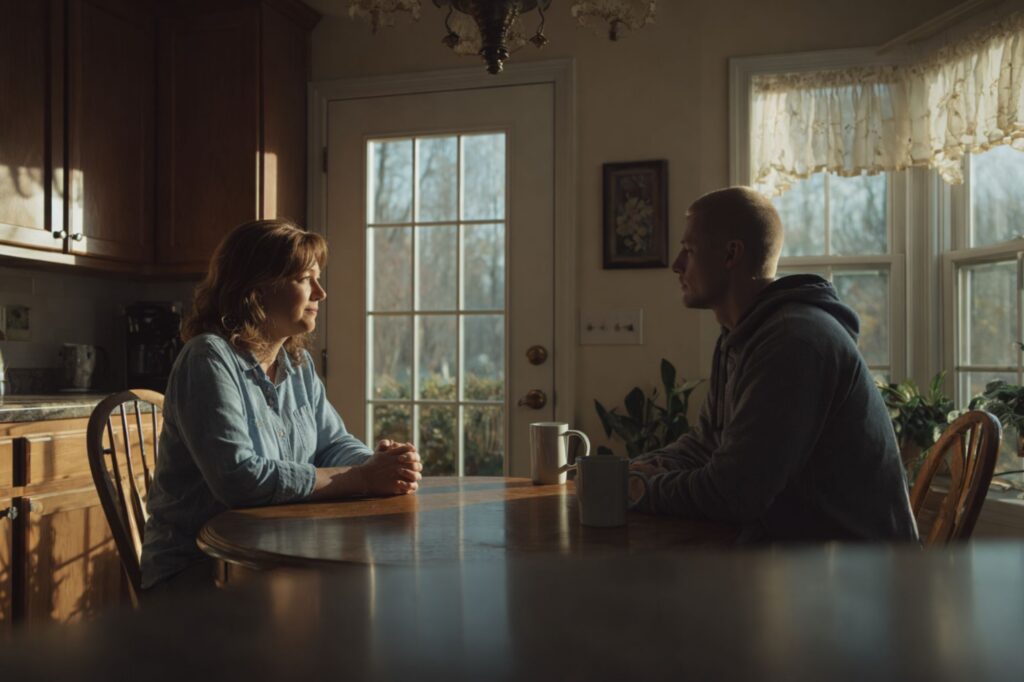To safely take low dose naltrexone (LDN), you need to know what to avoid when taking low dose naltrexone. This guide covers avoiding opioids, alcohol, certain medications, and managing other health conditions. Following these precautions will help you maximize the benefits of your LDN therapy.
Key Takeaways
Avoid opioid medications while taking low dose naltrexone (LDN) to prevent severe withdrawal symptoms and treatment disruptions.
Do not consume alcohol during LDN therapy, as it can strain the liver and alter the medication’s effects, increasing health risks.
Regularly communicate with your healthcare provider about all medications and supplements to manage potential drug interactions effectively.
Table of Contents
Avoiding Opioid Medications
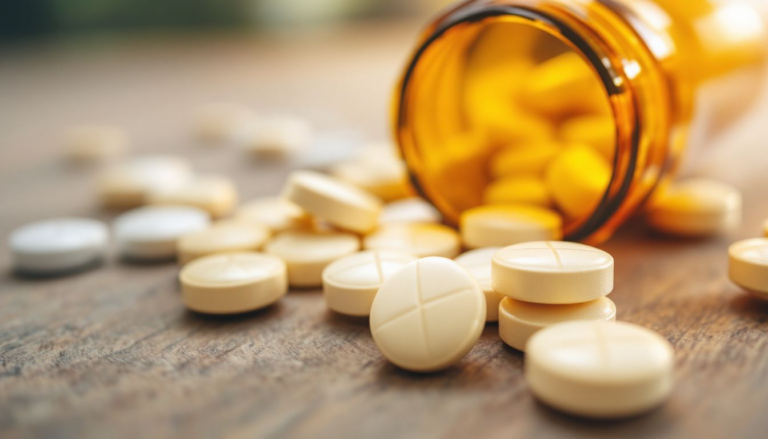
Avoiding opioid medications is crucial when taking low dose naltrexone. This isn’t just a minor suggestion—it’s a necessity to prevent severe opioid withdrawal and treatment disruption. Opioids and LDN simply don’t mix. The opioid antagonist properties of naltrexone block the effects of opioids, rendering them ineffective and potentially triggering opioid withdrawal symptoms like nausea, vomiting, and anxiety.
Imagine being on LDN and taking your usual pain medication, such as morphine or hydrocodone. You might expect relief, but instead, you could face a wave of withdrawal symptoms. This is because naltrexone blocks the opioid receptors, negating the pain relief and leading to a cascade of unpleasant effects. This makes LDN therapy unique, but also requires a careful approach to pain management.
Avoiding opioids outright is essential. Consult your healthcare provider to manage a safe transition to LDN. Wait 10 to 14 days after your last opioid dose before starting LDN to ensure your body has cleared the opioids. This waiting period helps prevent any overlap that could lead to a nasty surprise of withdrawal symptoms.
While low dose naltrexone can be effective for various conditions, taking naltrexone requires careful management, especially regarding opioid dependence and opioid use disorder and opioid use. Consult your doctor to tailor your chronic pain management plan and stay on the right path without risking your progress.
Alcohol Consumption Precautions
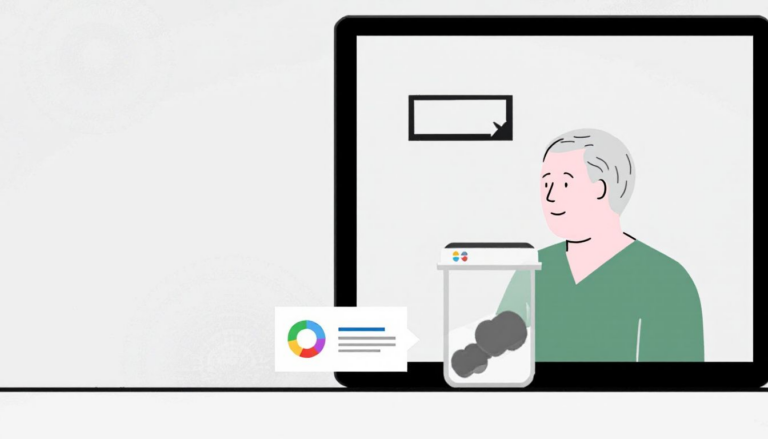
Steering clear of alcohol while on low dose naltrexone is highly recommended. As naltrexone impacts the body’s response to alcohol, diminishing its rewarding effects and obscuring one’s ability to perceive levels of inebriation accurately, there exists an increased likelihood of consuming more than planned. This raises the danger of experiencing severe adverse reactions.
Continual intake of alcohol during a low dose naltrexone regimen can intensify existing liver conditions since both substances are metabolized by this essential organ. The stakes are particularly high for individuals with past struggles with alcohol dependence due to the potential for critical health issues when mixing the two.
For optimal health and successful outcomes from your dose of naltrexone therapy, it is recommended that you completely abstain from drinking alcoholic beverages. Taking such a measure safeguards your liver function and guarantees that your treatment proceeds without unnecessary complications or hazards—a testament to prioritizing personal well-being where avoiding consumption serves as a minor concession to LDN therapy advantages.
Potential Drug Interactions
It’s crucial to grasp the potential drug interactions when you’re taking low dose naltrexone. This medication can interact with a wide range of other substances, including prescription medications, over-the-counter drugs, and herbal supplements. Such interactions may alter the efficacy and safety profiles of these substances.
To facilitate a seamless treatment journey with low dose naltrexone, it’s important to fully inform your healthcare provider about all medicines and supplements you are currently using. By doing so, your healthcare provider will be better equipped to anticipate and manage any possible drug interactions while maintaining both the safety and effectiveness of your LDN regimen.
Now we shall delve into various classes of potential drug interactions specific to those on a low dose naltrexone protocol.
Over-the-Counter Drugs
If you’re taking low dose naltrexone and require pain relief, common over-the-counter options such as acetaminophen or ibuprofen are usually considered safe choices.
It’s important to speak with your healthcare provider before introducing any new medications into your routine in order to prevent any adverse reactions.
Herbal Supplements
Navigating the use of herbal supplements can be complex. For example, kratom, which has compounds similar to opioids, may induce withdrawal symptoms if consumed alongside naltrexone. Widely used herbs such as St. John’swort, Ginkgo biloba, and Echinacea could disrupt the enzymes that process naltrexone and might diminish its therapeutic impact.
It is essential to disclose any herbal supplement consumption to your physician while on low-dose naltrexone (LDN). By doing so, you allow your healthcare provider to keep an eye out for potential drug-herb interactions and tweak your treatment regimen when necessary. Open communication with your doctor ensures both the efficacy and safety of your LDN therapy remain intact.
Prescription Medications
Monitoring prescription medications is essential, especially when they’re combined with low dose naltrexone (LDN). Opioid medications such as morphine or hydrocodone might lose their effectiveness if used concurrently with LDN. This happens because LDN has the capacity to block opioid effects, which could result in insufficient pain management and possible withdrawal symptoms.
It’s imperative to collaborate closely with your healthcare provider when managing prescription medications together with low dose naltrexone therapy. Your provider can make necessary dosage adjustments or seek alternative therapeutic options that do not conflict with the use of LDN. Staying engaged and well-informed throughout this process is crucial for ensuring a safe and effective treatment journey.
Recreational Drugs and Low Dose Naltrexone
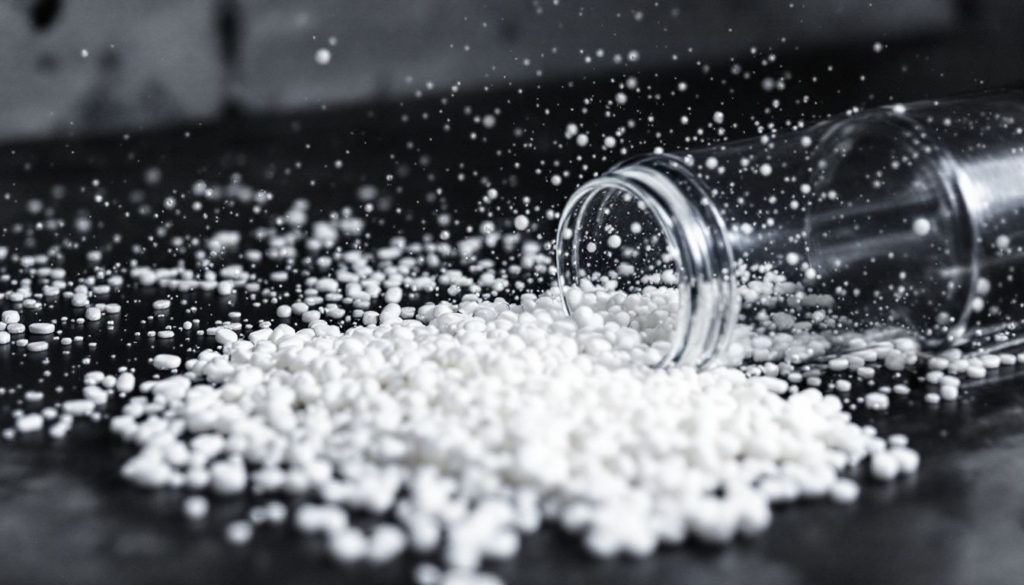
Engaging in the use of recreational substances while undergoing treatment with low dose naltrexone is fraught with considerable danger. Compounds resembling opioids found in kratom, for example, have been known to provoke intense withdrawal symptoms when used concurrently with naltrexone. Loperamide—a drug typically administered for diarrhea—ought to be circumvented due to its adverse interactions with LDN.
One grave risk associated with mixing leisure drugs and LDN stems from users possibly consuming higher quantities of these drugs attempting to bypass the blocking action of naltrexone. This reckless behavior could precipitate an overdose situation that threatens life itself, which highlights why it’s critical not to combine them. Individuals discontinuing their use of naltrexone may find themselves unusually susceptible to opioid effects subsequently increasing the risk for overdoses.
The most secure course one should follow involves completely abstaining from non-prescribed substances during a regimen involving low dose naltrexone. Such cautionary measures are essential in averting serious withdrawal ramifications and potential overdose risks while guaranteeing uninterrupted progress through your therapeutic process and protecting your well-being.
Dietary Considerations
Maintaining a nutritious and varied diet plays a vital role in amplifying the positive effects of low dose naltrexone therapy. Ensuring that your body is well-nourished with an array of nutrients aids in its overall health, which is fundamental for an optimal response to LDN treatment. Adequate hydration also contributes to efficient processing of the medication within your body.
To augment the effectiveness of your dose naltrexone regimen, it’s advisable to reduce intake of processed foods and limit added sugars. Such dietary modifications can bolster not only general wellness but also strengthen the safety and performance benefits associated with low dose naltrexone. Adopting a wholesome and balanced nutritional approach serves as an effective strategy for enhancing outcomes from low dose naltrexone therapy.
Special Medical Conditions
When initiating low dose naltrexone therapy, individuals with unique medical conditions must take particular care. It is essential to review your medical history in detail with your healthcare provider so that they can ascertain whether LDN is suitable for you. This conversation will assist in customizing your treatment approach and steering clear of possible adverse effects.
It’s imperative to notify all doctors involved in your care about the use of low dose naltrexone, especially because it could influence their decision-making regarding opioid prescriptions for pain management. Moving forward, we shall delve into certain health issues that necessitate extra vigilance and oversight when employing a LDN.
Liver Disease
For individuals with liver disease, consulting a doctor before starting low dose naltrexone is vital. LDN is metabolized by the liver, and existing liver issues can complicate this process. Conditions such as liver disease or hepatitis require close monitoring while on LDN to prevent potential liver-related side effects.
Patients with kidney or liver issues should be particularly cautious, as LDN is eliminated by the kidneys. Monitoring liver function is crucial to detect any adverse effects early and adjust the treatment as needed.
Long-term side effects may include liver damage, abdominal pain, and unusual bleeding or bruising.
Kidney Disease
Individuals suffering from kidney disease must be meticulously supervised while on a regimen of low dose naltrexone, as impairments in renal function might necessitate alterations to the dosage to preserve optimal functioning of the kidneys. Vigilant monitoring is crucial for averting any possible adverse effects and for confirming that the therapeutic benefits are achieved.
Consistent consultations with your healthcare provider are vital to ensure that the administration of low dose naltrexone is both secure and adapted specifically to your treatment needs.
Autoimmune Disorders
When employing low dose naltrexone for the management of autoimmune disorders, vigilant oversight is imperative. This vigilance ensures that LDN’s ability to modify immune activity does not inadvertently complicate the condition it aims to treat. There is promising evidence suggesting beneficial outcomes with LDN in treating ailments such as multiple sclerosis and Crohn’s disease where notable rates of improvement have been observed.
The effectiveness of low dose naltrexone lies in its capacity to bolster T regulatory cell function, an essential aspect for maintaining equilibrium within the immune system when facing autoimmune challenges. To guarantee both safety and efficacy during treatment, ongoing engagement with your healthcare provider and consistent monitoring are critical steps.
Pregnancy and Breastfeeding
When considering the use of low dose naltrexone during pregnancy and breastfeeding, it is essential to exercise caution. Low dose naltrexone (LDN) is discouraged for pregnant women because there may be a risk to the developing fetus. It falls under FDA Pregnancy Category C, which indicates that fetal risk cannot be entirely ruled out.
Although no concrete evidence suggests that LDN results in birth abnormalities and its effects on infants who are breastfed seem not to be detrimental, consulting with a healthcare provider is crucial. They can provide guidance regarding the continuation of low dose naltrexone treatment by weighing potential risks against benefits during this sensitive period.
Managing Missed Doses

Should you forget to take your low dose naltrexone, administer it promptly upon recollection. Yet, if the time is close for your subsequent dose of naltrexone, omit the one missed and proceed as usual. Refrain from taking an additional amount to compensate for any skipped doses because this could cause harmful reactions.
To guarantee that your therapy with low dose naltrexone remains both secure and efficacious, following these instructions is essential. In case of uncertainty or queries regarding a missed dose or other aspects of treatment with low dose naltrexone, seeking counsel from your healthcare provider is recommended.
Regular Medical Check-Ups
Consistent medical evaluations are essential in tracking both the success and security of treatment with low dose naltrexone. These assessments enable tailored adjustments to the dosage according to personal response, as well as early identification of any potential adverse reactions.
Sustaining a transparent dialogue with your healthcare provider is vital for effectively managing low dose naltrexone therapy and guarantees immediate attention to any shifts in your health condition. Routine consultations form an integral part of a prosperous LDN regimen.
Summary
To ensure a safe and effective treatment experience with low dose naltrexone, one must exercise vigilant management of their regimen. It’s essential to steer clear of opioid medications and alcohol consumption, as well as be mindful of any potential drug interactions that could interfere with the therapy’s success. Aligning your diet and taking into account any unique medical conditions can significantly bolster the positive effects derived from LDN.
It is vital to engage in continuous dialogue with your healthcare provider throughout this process for optimal results when using low dose naltrexone. Prioritizing your health and safety by adhering to these guidelines guarantees that you receive both secure and efficient care on your journey through LDN treatment.
Frequently Asked Questions
Why should I avoid opioid medications while taking low dose naltrexone?
You should avoid opioid medications while taking low dose naltrexone, as they can lead to withdrawal symptoms and undermine the benefits of LDN.
It’s essential to prioritize the effectiveness of your treatment.
Can I drink alcohol while on low dose naltrexone?
It is advisable to avoid alcohol while on low dose naltrexone to prevent severe side effects and protect your liver health.
What should I do if I miss a dose of low dose naltrexone?
If you miss a dose of low dose naltrexone, take it as soon as you remember.
However, if it’s close to your next scheduled dose, skip the missed dose and resume your normal dosing schedule.
Are there any dietary recommendations for enhancing the benefits of low dose naltrexone?
A healthy, balanced diet and proper hydration are essential for maximizing the benefits of low dose naltrexone.
These practices support overall well-being and may improve the therapy’s effectiveness.
What are the risks of using recreational drugs while on low dose naltrexone?
Using recreational drugs while on low dose naltrexone significantly increases the risk of severe withdrawal symptoms and overdose.
It is essential to avoid such substances to ensure your safety and well-being.
What to Avoid When Taking Low Dose Naltrexone (LDN) in New Hampshire
Low Dose Naltrexone (LDN) is a medication that has gained popularity for its potential benefits in managing various autoimmune conditions, chronic pain, and even some mental health disorders. However, there are specific considerations when using LDN, particularly regarding lifestyle, diet, and other medications. Below is a localized FAQ to help those in New Hampshire navigate what to avoid when taking LDN.
Should I avoid alcohol while taking LDN in New Hampshire?
Yes, it’s advisable to avoid alcohol when taking Low Dose Naltrexone. Naltrexone blocks opioid receptors, and alcohol can affect the brain’s response to these receptors. Drinking alcohol while on LDN can reduce the effectiveness of the medication and cause side effects like headaches, dizziness, or nausea. In New Hampshire, where craft beer and local spirits are popular, it’s important to be mindful of your alcohol intake while on LDN.
Can I take other medications or supplements with LDN?
Before combining LDN with any other medication or supplement, especially those prescribed for pain or mental health issues, it’s important to consult your healthcare provider. In particular, avoid opioid-based painkillers (like oxycodone or hydrocodone) while on LDN, as the drug blocks opioid receptors. You should also be cautious with immune-modulating treatments commonly prescribed for autoimmune diseases.
In New Hampshire, where patients may also be managing Lyme disease, autoimmune conditions like Multiple Sclerosis (MS), or fibromyalgia, make sure your doctor is aware of any other treatments you are receiving.
Can I continue to take other forms of pain relief, such as cannabis, while on LDN in New Hampshire?
Dr. Mitchell G. Cohen is a board-certified Internal Medicine specialist with over 34 years of experience in patient-centered healthcare. A graduate of Hahnemann University School of Medicine, Dr. Cohen completed his internship at the University Health Center of Pittsburgh, where he gained invaluable hands-on experience. He is also a certified addiction specialist, holding membership with the American Society of Addiction Medicine (ASAM).
Currently based in Nashua, NH, Dr. Cohen is affiliated with Saint Joseph Hospital, where he provides comprehensive care focusing on both internal medicine and addiction treatment. His expertise includes prevention, diagnosis, and management of adult diseases, as well as specialized care for individuals facing substance use disorders.
Dr. Cohen is committed to fostering open communication, ensuring his patients are fully informed and empowered to make confident decisions about their health and treatment options.

MD Mitchell Grant Cohen
Dr. Mitchell G. Cohen is a board-certified Internal Medicine specialist with over 34 years of experience in patient-centered healthcare. A graduate of Hahnemann University School of Medicine, Dr. Cohen completed his internship at the University Health Center of Pittsburgh, where he gained invaluable hands-on experience. He is also a certified addiction specialist, holding membership with the American Society of Addiction Medicine (ASAM).
Currently based in Nashua, NH, Dr. Cohen is affiliated with Saint Joseph Hospital, where he provides comprehensive care focusing on both internal medicine and addiction treatment. His expertise includes prevention, diagnosis, and management of adult diseases, as well as specialized care for individuals facing substance use disorders.
Dr. Cohen is committed to fostering open communication, ensuring his patients are fully informed and empowered to make confident decisions about their health and treatment options.
- MD Mitchell Grant Cohen
- MD Mitchell Grant Cohen
- MD Mitchell Grant Cohen
- MD Mitchell Grant Cohen
- MD Mitchell Grant Cohen
- MD Mitchell Grant Cohen
- MD Mitchell Grant Cohen
- MD Mitchell Grant Cohen
- MD Mitchell Grant Cohen
- MD Mitchell Grant Cohen
- MD Mitchell Grant Cohen
- MD Mitchell Grant Cohen
- MD Mitchell Grant Cohen
- MD Mitchell Grant Cohen
- MD Mitchell Grant Cohen
- MD Mitchell Grant Cohen
- MD Mitchell Grant Cohen
- MD Mitchell Grant Cohen
- MD Mitchell Grant Cohen
- MD Mitchell Grant Cohen
- MD Mitchell Grant Cohen
- MD Mitchell Grant Cohen
- MD Mitchell Grant Cohen
- MD Mitchell Grant Cohen
- MD Mitchell Grant Cohen
- MD Mitchell Grant Cohen
- MD Mitchell Grant Cohen
- MD Mitchell Grant Cohen
- MD Mitchell Grant Cohen
- MD Mitchell Grant Cohen
- MD Mitchell Grant Cohen
- MD Mitchell Grant Cohen
- MD Mitchell Grant Cohen
- MD Mitchell Grant Cohen
- MD Mitchell Grant Cohen
- MD Mitchell Grant Cohen
- MD Mitchell Grant Cohen
- MD Mitchell Grant Cohen
- MD Mitchell Grant Cohen
- MD Mitchell Grant Cohen
- MD Mitchell Grant Cohen
- MD Mitchell Grant Cohen
- MD Mitchell Grant Cohen
- MD Mitchell Grant Cohen
- MD Mitchell Grant Cohen
- MD Mitchell Grant Cohen
- MD Mitchell Grant Cohen
- MD Mitchell Grant Cohen
- MD Mitchell Grant Cohen
- MD Mitchell Grant Cohen
- MD Mitchell Grant Cohen
- MD Mitchell Grant Cohen
- MD Mitchell Grant Cohen
- MD Mitchell Grant Cohen
- MD Mitchell Grant Cohen
- MD Mitchell Grant Cohen
- MD Mitchell Grant Cohen
- MD Mitchell Grant Cohen
- MD Mitchell Grant Cohen
- MD Mitchell Grant Cohen
- MD Mitchell Grant Cohen
- MD Mitchell Grant Cohen
- MD Mitchell Grant Cohen
- MD Mitchell Grant Cohen
- MD Mitchell Grant Cohen
- MD Mitchell Grant Cohen
- MD Mitchell Grant Cohen
- MD Mitchell Grant Cohen
- MD Mitchell Grant Cohen
- MD Mitchell Grant Cohen
- MD Mitchell Grant Cohen
- MD Mitchell Grant Cohen
- MD Mitchell Grant Cohen
- MD Mitchell Grant Cohen
- MD Mitchell Grant Cohen
- MD Mitchell Grant Cohen
- MD Mitchell Grant Cohen
- MD Mitchell Grant Cohen
- MD Mitchell Grant Cohen
